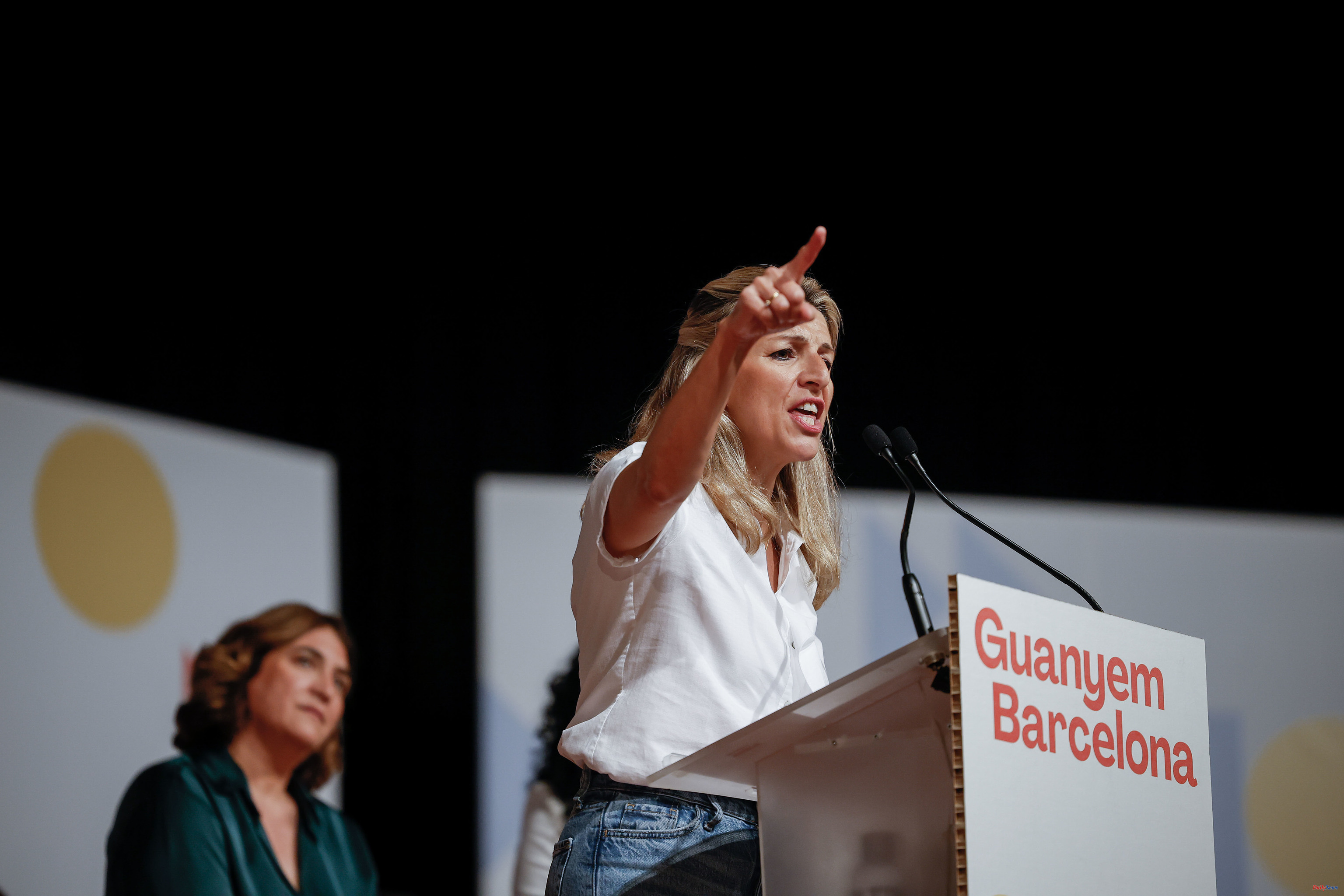Yolanda Díaz takes new steps forward every day. The last one has been the presentation of the bases of her political project, which up to 35 working groups have prepared for months with the participation of about a thousand professionals and activists. Technically it is not Sumar's electoral program, but it can be considered that the result is her sketch or her guidelines. Among the multitude of ideas or proposals that are addressed, most of them vaguely, the impulse of the so-called "universal inheritance" stands out, which is the payment of a significant amount of money to each young person who turns 18 to spend in housing or whatever and that would be paid for at the expense of the assets of the richest.
Hundreds of initiatives or ideas like this one are collected throughout the 35 thematic documents that have been made public this Thursday, and which are now entering a new phase in which Díaz invites supporters to participate by consulting and sending their contributions through Add's website. It will be at the end of the summer when the 35 texts have a more definitive character and provide content for the vice-president's project "for the next decade". But whose first stop is the end-of-year generals.
If Podemos broke in in 2014 with the banner of universal basic income, Díaz is now launching his political project agitating an issue that until now had not had much prestige in Spain and that would be quite a claim for the younger electorate. Sumar's document on Social Welfare and Rights is committed to complementing traditional redistributive policies with "new ambitious pre-distributive initiatives" such as "universal inheritance", on which it stresses that it would be interesting to "explore and debate". Thus, it describes that this measure implies establish "a public system of capital endowment to be assigned to each youth to spread ownership at the bottom and limit its concentration at the top." This cumbersome statement basically means that all young people receive a payment of a certain amount of money at a certain age to face their conditions of inequality and precariousness and to invest in improving their material conditions such as housing or to face studies or whatever. . There are those who propose that this money be received at 18 years of age and those who set it at 25. This transfer of money to young people would come from the richest people and Sumar especially values it as a redistributive policy because it means reducing "already at source" the inequality generated by the income and wealth gap in Spain. This is exemplified by Sumar's own document: "According to some calculations, a universal inheritance of around 20,000 euros to be received universally when reaching the age of majority could be financed with a wealth/inheritance tax of less than 10% and that would leave the habitual residence and wealth up to a million euros". The idea of "universal inheritance" is not invented now by Sumar, but rather by economists such as Atkinson or Piketty. "A good part of the inequality of opportunities is generated by the inequality of wealth and, in particular, by the distribution of home ownership. A universal inheritance, in line with the proposals of Atkinson or Piketty, is a proposal for the equalization of opportunities and a more egalitarian distribution of social wealth that would strongly impact the opportunities of the younger population", he explains. In addition to this, the bases of the Sumar program also affirm that the implementation of "effective and generous" minimum incomes is "essential "to tackle poverty in Spain. That is why it proposes to improve the Minimum Vital Income by increasing its amount and expanding the profiles of people who can request it "including, among other groups, people under 23 years of age or women in situations of labor vulnerability" or immigrant families " in an irregular situation with dependent minors".
In the economic document, Sumar's proposal is a "progressive tax reform" that is basically oriented towards large companies and estates "contributing more", and capital income, mainly. Thus, it establishes three "fundamental" lines: personal income tax, corporate tax and taxing wealth. Regarding personal income tax, it proposes "disaggregating the current tranche between 60,000 and 299,999 euros into several tranches with the aim of applying different and increasing rates". The marginal rates would be raised in the "higher" income brackets to promote "progressivity and increase collection." In the same way, the types and brackets in capital income would also be increased. Regarding the Corporation tax, it sets it at 15% "on the accounting profit regardless of the result of the declaration" and obliges "large companies -that take advantage of of all deductions and tax regimes and do not enter anything or very little - to have at least a minimum contribution". In all chaos, it is proposed to "review and cut" the deductions or exemptions. Regarding wealth, there are two proposed paths. One, to make the tax on large fortunes "permanent", with a "minimum" in all the autonomous communities and avoiding bonuses that reduce its impact. And two, increase the collection capacity of the Inheritance and Donations tax by establishing minimums and stopping reductions, allowances and deductions. "It is about preventing the possible downward competition spiral from ending with the virtual disappearance of the tax, at least in the transmission of wealth between direct family members." "It is necessary," he remarks, "to recover the collecting capacity" of this tax.
According to the criteria of The Trust Project












